The British-Moroccan streetwear start-up giving teenagers T-shirts to sell instead of drugs
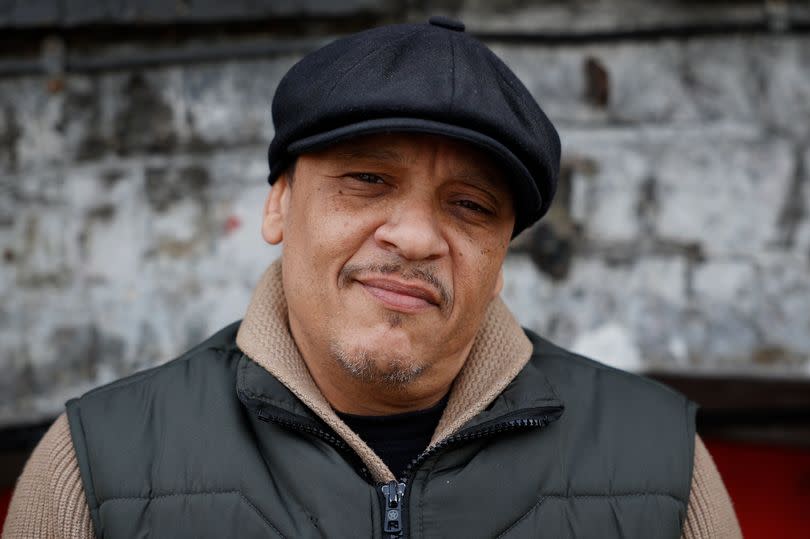
In an underground garage near Westbourne Park station, Marocafella is trying to make 'big noise'. A lockdown project, that began as a celebration of Moroccan culture through streetwear, has branched out to podcasts and tackling gang crime. Tarik Kamhouri's aim is to shine a light on what he sees as an under represented community in the heart of West London.
Born in North Kensington to Moroccan parents who came to Ladbroke Grove from Larache in the 1960s, Tarik says this was Morocco's Windrush moment at a time when London needed hotel workers, cleaners, and chefs. Moroccan people filled those roles and a tightknit community was birthed on Golborne Road - now sometimes known as Little Morocco.
"Everyone who comes from Morocco makes a beeline there because that's the closest you get to a Moroccan city in London," Tarik explained, recalling how the elders brought 'very close' bonds to the UK from their time together at home. But Tarik has watched the older generation dying out, and now he sees a need for young British-Moroccan's to take responsibility.
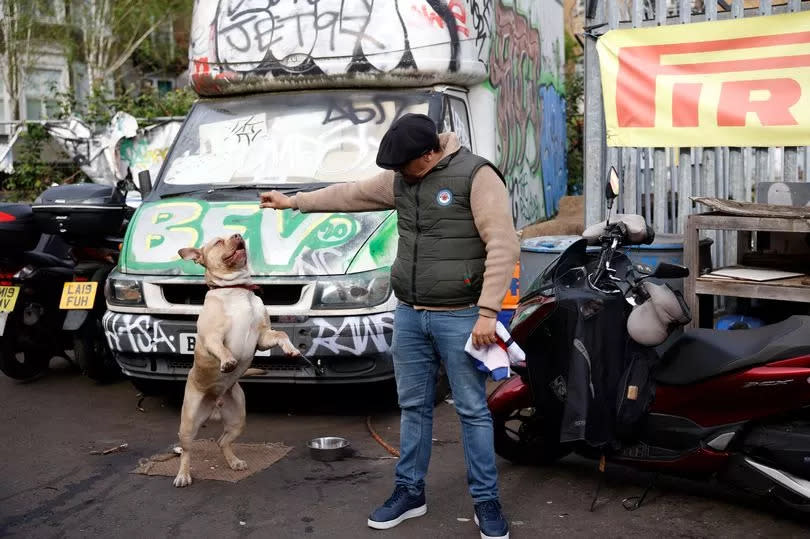
"We want to let people know we are not just about sandwiches and smoking a spliff with a coffee," he told MyLondon. "We have got artists, musicians, and footballers. But people are keeping quiet, so I am trying to unlock it. We want our own English representatives."
The first African nation to reach a world cup semi-final, world-beating green energy, and the largest phosphate reserves on the planet, are just some of the reasons, Tarik says, you can expect this third world country to move up the world economic rankings over the next few years.
The agriculture rich country also legalised cannabis in 2021, becoming a major exporter to the medicinal marijuana industry, and there's a 'Brexit Buster' boat you can catch from Poole, in Dorset, all the way to the port town of Tangiers. These are the sort of positive contributions Tarik wants British-Moroccan's to boast about, and his voice is full of passion when we speak.
'We are trying to get them to put down drugs'
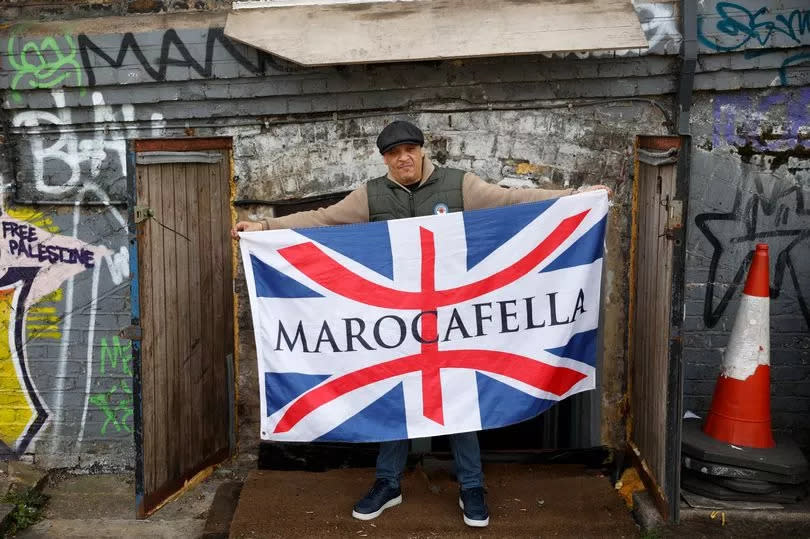
But while there has been good news coming from North Africa, Tarik says the Moroccan community in London is still reeling from cuts to youth services under successive Conservative governments. After noticing a surge in young British-North Africans caught up in crime when he was an outreach worker, Tarik wanted to dig deeper but felt 'restricted' by all the paperwork.
Always one to take action, he quit that role to get back to the frontline. "I get results from face to face work. They said turn your phone off after 5pm, but these are gangs. They don't stop at 5pm," he told us, recalling times when mums would turn up at his door asking for help.
One of Tarik's ideas includes getting young people away from gangs by giving them Marocafella t-shirts to sell instead of drugs. "They go around with t-shirts in their bags and they are shotting them," he explained. "We are trying to get them to put down drugs and come here and be creative. If they are selling, they are selling, so we just give them something else to sell."
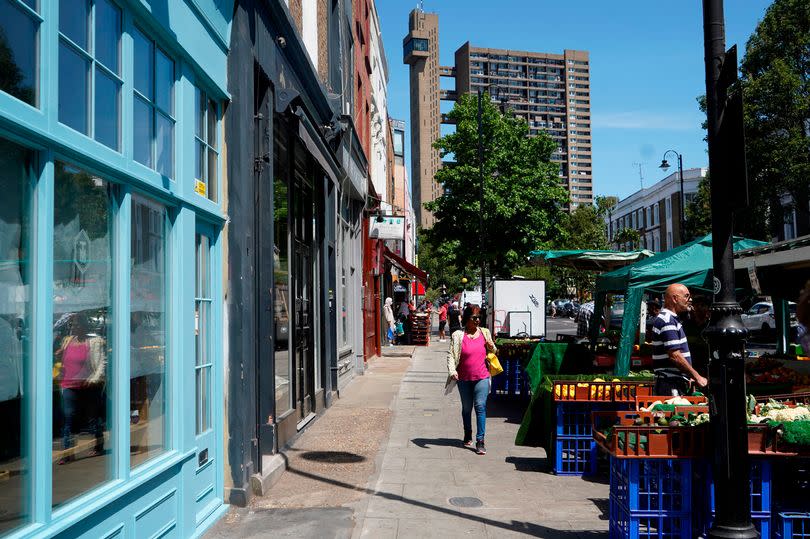
The scheme allows young people to get involved with t-shirt creation, while profits, of around £15 to £20 a top, are split with the young person and put back into the business to make it sustainable. There's also an opportunity to run a stall on Portobello Market.
Tarik hopes the Marocafella fashion label can become a multi-million pound company, which means the gangs project, called Atlas Lions, won't need to rely on government grants, whilst letting him take his own unique approach.
"The reason we do not want big big funding, is that they watch what you're doing and you answer to them. This way, we do not have to worry about cuts. If they close the youth centre, we can stay," Tarik said.
'They are kinda killing our area'
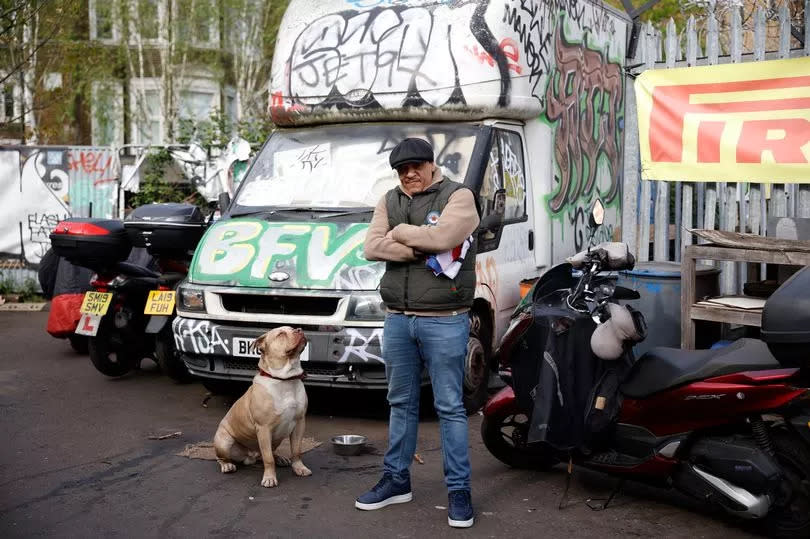
Bringing people together is nothing new to Tarik, who managed to organise football games where kids nutmeg local police officers 'to make them look silly', rather than smashing them. He's putting those same people-skills to use with the Marocofella podcast which brings British-Moroccans into the podcast studio to talk about things that matter to the community.
Episodes recently featured London-born boxer Youssef Khoumari, as well as musicians who are making a name for themselves. The converted garage space has also been used to record a podcast called Uncles, featuring Yusuf Dwaine Patterson, who was recently let out of prison after 22 years, which included nearly seven years in solitary confinement.
If giving kids t-shirts to 'shot' instead of drugs sounded like a novel idea, then Tarik's plan to have a live phone-in show - where young people open up about gang involvement on air - might also raise a few eyebrows. Using his and Yusuf's wealth of experience, Tarik believes a successful show could provide a lifeline for young people, and would be paired with an aftercare service to make sure they get continued support.
While gang violence is affecting some young British-Moroccans in West London, Tarik also singles out gentrification as a threat to the wider community. "I have seen lots of Moroccan shop owners gazumped out of their premises. Good luck to [the new owners], but they are kinda killing our area. They come in selling £8,000 sofas, but no-one in this area is going to paying for that," he told us.
The lack of a gathering space for the Moroccan diaspora also worries Tarik. He points out the Caribbean community has enjoyed access to the charity-funded Pepper Pot Centre since 1981, while elderly British Moroccan's are forced to spend hours chatting on the street corners without a central place to congregate.
With enough funding, Tarik hopes to fund overseas projects in Morocco, employ full-time outreach workers in London, and bring a community hub for the older generation. It's no small ambition, but as Tarik told us: "We are here to make a change. People are going to come because they love the community. We are coming here to make big noise. We are breaking rules and boundaries, and stirring the pack."
You can buy Marocafella t-shirt here and watch the podcast here.
Got a story or a court case we should cover? Please email callum.cuddeford@reachplc.com or WhatsApp 07580255582
Don't miss out on the latest crime stories from across London. Sign up to MyLondon's Court & Crime newsletter HERE

 Yahoo News
Yahoo News 
